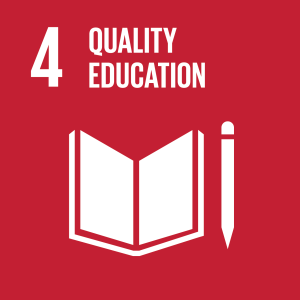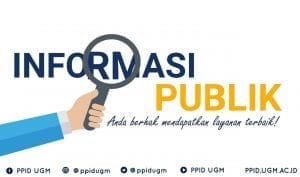Yogyakarta (28/06/2023) – Monday, 28 November 2022 became a historic moment for the Javanese Literature Study Program at Gadjah Mada University (UGM). Based on the Decree of the Chancellor of Universitas Gadjah Mada Number 1286/UN1.P/KPT/HUKOR/2022, the Javanese Literature Study Program officially changed its name to the Javanese Language, Literature, and Culture Study Program.
The change in the name of the Study Program was based on the Decree of the Chancellor of Universitas Gadjah Mada Number 1718/UN1.P/SK/HUKOR/2017 concerning the naming of the Study Program at Universitas Gadjah Mada which was deemed not under the development of the Study Program at Universitas Gadjah Mada so it needed to be revoked and issued a decree the new one.
In an interview with the Head of the Javanese Language, Literature and Culture Study Program, Dr. Daru Winarti, M.Hum., she explained, “When we discuss Java, we cannot only rely on literature but also culture. In these Javanese texts, we do not only talk about literature but also contain cultural elements. inside it.”
This opinion was also supported by Rudy Wiratama S.I.P., M.A., a lecturer in the Javanese Language, Literature, and Culture Study Program who focuses on the field of literary studies. According to him, the literary aspect cannot be separated from the cultural aspect.
“Javanese literature does not live in a vacuum. It lives in various aspects of Javanese life. If we study Javanese literature, we don’t just read texts in the library, because Javanese literature lives not only there. When we study literature, it is Automatically we also study the culture, because the two are interrelated and cannot be separated,” explained Rudy Wiratama S.I.P., M.A.
“An example of this is the keris. By studying the literature he wrote, we can know the history of the keris. By studying the oral literature, we can find out about knowledge and belief in the keris. For example, how to treat a keris, a keris must be cleaned in the month of Sura, and so on. But by studying the culture, we can know when is the right time to wear a dagger. For example, for brides, keris that are used has a warangka Ladrang. As for the village apparatus, the keris used is a warangka Gayaman. Not suitable if used in reverse. That’s just one illustration” he added.
Rudy Wiratama S.I.P., M.A., also added that the change in the name of the Study Program relates to the future of students.
“From time to time the demographics of Javanese Literature Study Program students are increasingly diverse. Therefore, the change in the name of the study program is also related to the future of students. Today, we can no longer hold onto the old view that graduates of Javanese literature will become teachers of the local language. Because the government established PPG or Teacher Professional Education which must be taken when you become a teacher formally it means it is impractical to use it right away. In contrast to people who graduated from PBSD (Regional Language and Literature Education) under the FKIP (Faculty of Teaching and Education). If the teaching profession has been accommodated in PBSD, then Javanese Literature graduates iki arep ngapa??”
He continued, “Questions of ‘graduates of Javanese Literature iki arep ngapa??’ (What do graduates of Javanese Literature want to do?) is an intriguing but reflective question. To answer the question, it turns out there are lots of people out there who need skilled and proficient scholars in Javanese matters, not just literature. For example, on the Jogja-Solo KRL (Electric Train), there is an announcement consisting of Indonesian in the form of ‘Selamat menikmati perjalanan anda‘, in English in the form of ‘Have a nice trip’, and in Javanese krama inggil (high manners) in the form of ‘Sugeng sekeca lelampah’ When translated into Javanese it becomes Sugeng sekeca lelampah, it tickles because lelampah in Javanese it does not mean to travel. Lelampah means dying. That is proof that public lands like that need people who are proficient in Javanese.”
“Another example, there is a high-ranking official at a government-owned bank who wants Javanese language education to be held, especially for customer service. This is because 80% of the customers served by the Bank are in rural areas and their first language is Javanese,” he added.
Rudy Wiratama S.I.P., M.A., explained that currently, the Indonesian government is encouraging the development of the cultural industry because cultural capital is the greatest potential possessed by the Indonesian people.
“Cultural capital is the most potential that the people of Indonesia have. This cultural capital can encourage the development of creative industries. It is this cultural capital that requires an understanding of the culture of many Javanese Literature students who have the potential to fill these spaces. For example, by setting up a traditional culinary company, establishing a wedding organizer, then establishing a cosmetology studio, dance studio, Javanese literary literacy education, and so on.” he explained.
When asked about the possibility of opening the field of cultural studies, Rudy Wiratama S.I.P., M.A., stated that this was possible.
“Yes, if we look at the current study program structure, there will be language/linguistics, literature, and philology, and there will likely be an interest in the cultural field. Therefore, there will be many courses in the cultural field. Currently, many courses are optional. In the future, there could be compulsory culture courses. However, this is still being finalized.” he explained.
Dr. Daru Winarti, M.Hum., also expressed a similar opinion.
“That possibility exists. However, even if it doesn’t end there (the field of cultural studies), discussions in the fields of philology, linguistics, and literature will definitely be linked from a cultural perspective so that the discussion becomes complete.”
In the interview, Rudy Wiratama S.I.P., M.A., S.I.P., M.A., hopes that the change in the name of this Study Program will produce graduates who have a variety of expertise and skills so that they can be accepted by various jobs.
“We hope to produce graduates who have diverse expertise and skills and can be applied in various jobs. Apart from that, UGM also implements the vision and mission sparked by Bung Karno as the Indonesian Cultural Center. Therefore, people who enter UGM are not only expected to be smart individuals but also maintain the characteristics of a cultured Indonesian human being. In what way? The way that culture must be studied. Therefore, cultural studies are important.” he said.



